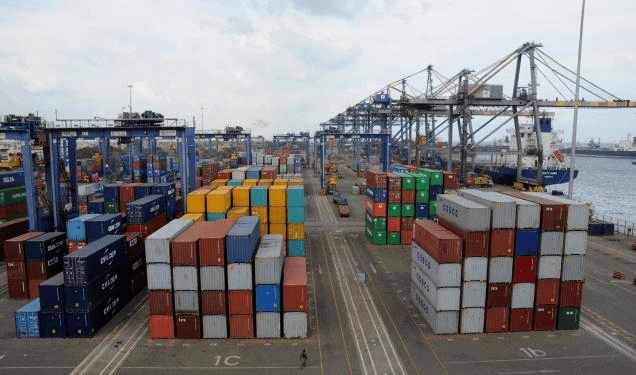The Office of the Special Prosecutor (OSP) in Ghana has unveiled a complex case of alleged corruption and fraud involving the attempted theft and auction of ten containers of imported rice at the Tema Port. This elaborate scheme, orchestrated by high-ranking public officials and aided by complicit customs officers, highlights vulnerabilities within the port system and underscores the persistent challenge of corruption within public institutions. The case centers around the alleged actions of Issah Seidu, James Keck Osei, John Abban, and Peter Archibald Hyde, who are accused of conspiring to divert the rice shipment, which had been legally imported from Thailand in 2022. The ensuing investigation and subsequent charges brought by the OSP represent a significant step in holding powerful individuals accountable for their alleged abuse of authority and fraudulent activities.
The alleged mastermind of this operation, Issah Seidu of the National Insurance Commission, is accused of employing fabricated documents, including a letter purportedly from the Office of the Vice President, where James Keck Osei, another accused, previously held a directorial position. This falsified documentation was central to their strategy of falsely claiming ownership of the rice containers and subsequently attempting to auction them off to Seidu himself. The audacity of this plan is further amplified by the fact that the legitimate importers had already fulfilled all required duties and taxes associated with the shipment. The alleged involvement of Osei, given his former position in the Vice President’s office, raises questions about the potential reach of the scheme within the upper echelons of government.
The alleged complicity of customs officials John Abban and Peter Archibald Hyde played a crucial role in facilitating the illegal clearance of the rice containers. By deliberately circumventing established protocols and procedures, Abban and Hyde are accused of enabling the conspirators to unlawfully acquire possession of the valuable cargo. Their actions represent a breach of public trust and demonstrate how individuals within key positions can exploit their authority for personal gain. The OSP’s investigation has meticulously uncovered the alleged collusion between these officials and the architects of the fraudulent scheme, highlighting the importance of robust oversight mechanisms within customs and port operations.
The unraveling of this scheme began with internal audits that flagged irregularities in the documentation surrounding the rice shipment. This initial discovery led to a High Court ruling that definitively exposed the forged documents used by Seidu and Osei, effectively halting the illicit transaction in its tracks. Following the court’s intervention, the ten containers of rice were seized, prompting a comprehensive investigation by the OSP. The court’s decisive action underscores the importance of a functioning judiciary in safeguarding against corruption and upholding the rule of law. The subsequent OSP investigation delved deeper into the conspiracy, uncovering the alleged network of individuals involved and their respective roles in the attempted fraud.
The OSP’s statement emphasizes the gravity of the alleged offenses, stating that the individuals involved “sought to exploit their positions in public service for personal enrichment.” This case serves as a stark reminder of the potential for corruption to undermine public institutions and erode public trust. The OSP’s commitment to pursuing this case signals a determination to hold those in positions of power accountable for their actions and to deter similar acts of corruption in the future. The prosecution of these individuals is not merely about recovering the stolen goods; it is about sending a clear message that such behavior will not be tolerated.
The upcoming court appearance of the four accused—Seidu, Osei, Abban, and Hyde—on June 27, 2025, marks a critical juncture in this case. They will face charges including corruption, conspiracy to commit fraud, and forgery of official documents. The outcome of this trial will be closely watched, as it represents a significant test of the OSP’s mandate to combat high-level corruption and restore public faith in state institutions. The successful prosecution of these individuals would send a powerful message about the government’s commitment to tackling corruption and ensuring accountability within its ranks. This case also highlights the need for continuous strengthening of internal controls and oversight mechanisms within public institutions, particularly those involved in revenue collection and the management of public resources.


